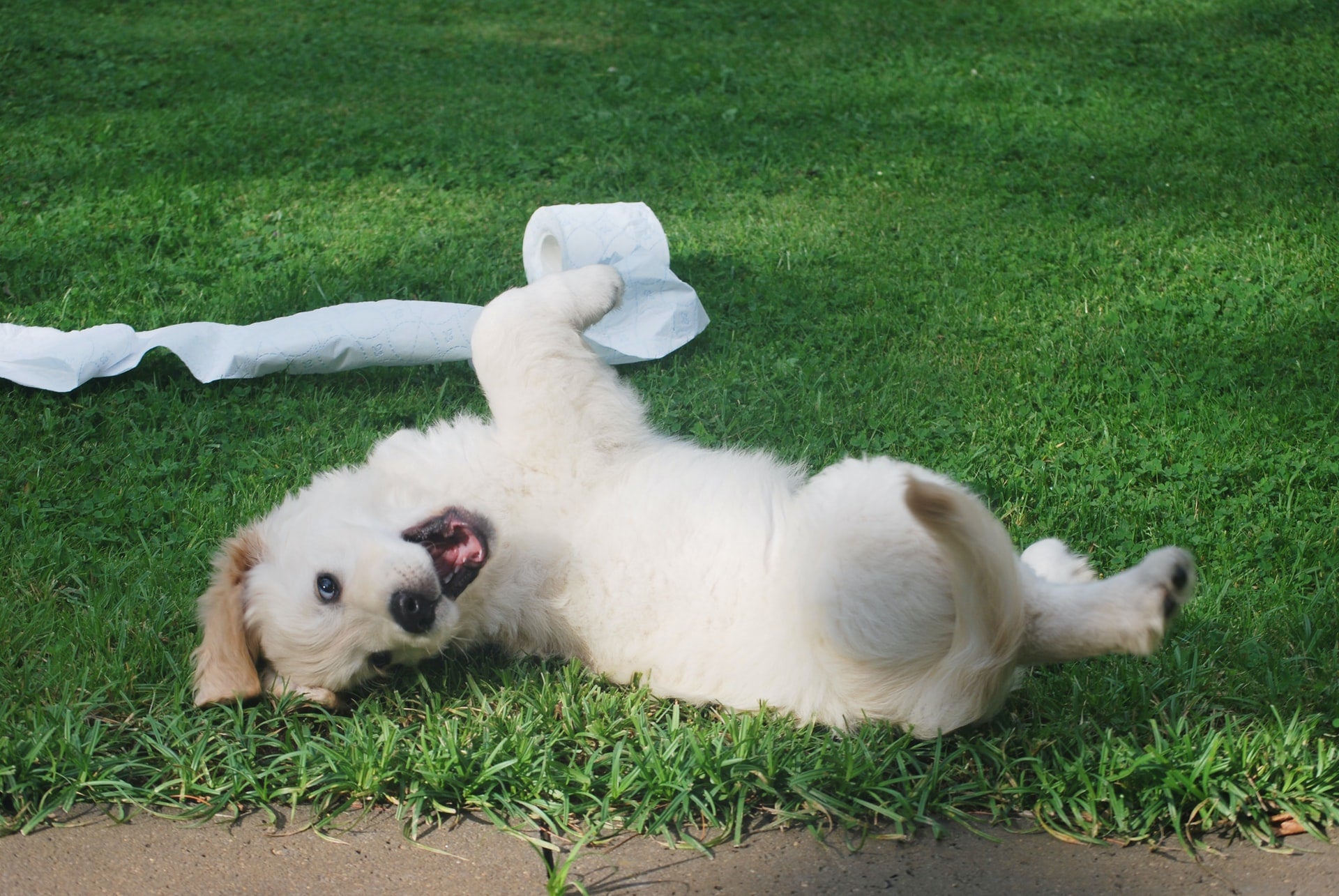From his meals to his bathroom breaks, you’re well aware of the ins and outs of your dog’s day. You likely plan walks around your dog’s digestive schedule; if you share responsibilities with another household member, you’ve probably found yourself frequently reporting on the status of your pooch’s poops.
Your dog’s bathroom habits aren’t random. Read on to learn more about your pup’s poops and how to identify potential signs of concern.
How Often Should Dogs Poop?
All dogs poop, but the frequency of their bathroom breaks depends on a few different factors including size, age, diet, activity level, and amount of time spent outside.
Typically, dogs should poop at least once per day. Some may even go up to three times or more. As long as your dog’s stools are looking normal, multiple bowel movements shouldn’t be a cause for concern. Of course, you can always check with your vet to rule out any health issues.
Puppies tend to poop more frequently than adult dogs; the same applies to senior dogs. Because dogs are creatures of habit, though, they will gradually fall into a routine and tend to relieve themselves on a relatively consistent schedule, such as on your post-dinner evening walk.
Keep in mind that any dietary changes may also result in changes to your dog’s bathroom schedule.
What Should Your Dog’s Poop Look Like?
Whether you’re using a pooper scooper to clean up the yard every few days or using a bag to clean up after your dog on your daily walks, you’ve likely come into contact with your dog’s poop on multiple occasions. As a result, you have a good idea of what’s normal when it comes to your dog’s stools.
Healthy poop should be brown, log-shaped, and proportionate to the amount of food he’s eaten. It should also be soft-yet-firm, and easy to pick up without leaving too much of a mess behind.
If you see any color abnormalities, such as black, gray, yellow, or even signs of blood, talk to your vet to rule out health concerns. The occasional harder-than-normal or softer-than-normal stool may not be a cause for concern, but you may also want to seek out feedback from a vet if your pup’s poops are consistently hard or soft.
Additionally, check for any abnormal content such as fur, worms, or foreign objects. After all, your dog’s poop is a prime indicator of what’s going on inside his body.

Common Dog Bathroom Issues and Remedies
Digestive distress happens to the best of us, for a variety of reasons. Common dog bathroom issues include:
Constipation
If your dog is struggling, reluctant, or unable to poop, he may be dealing with constipation. This could be caused by blockage in the intestines (for example, if Fido swallowed an inedible object), or even an external blockage on the anus such as matted hair.
Additional causes of canine constipation include stress and anxiety, side effects of medication, dietary changes, lack of sufficient exercise, or other underlying health issues.
Upset Stomach
When your dog’s poop is runny and difficult to pick up, you cross your fingers hoping it’s a one-time incident without future messes in the house.
Common causes of an upset stomach include dietary changes, medication side effects, food allergies, stress and anxiety, parasites, or health issues.
Difficulty Urinating
Dogs should urinate at least as often as they defecate. In other words, for every poop, there should also be pee—at least once every eight hours.
If your dog is having difficulty peeing or refusing to go altogether, he may be experiencing bladder issues.
Going in the House
If your house-trained pup is going to the bathroom inside even though he knows better, there’s probably something bigger going on than simply bad behavior.
Perhaps your pup is experiencing separation anxiety; perhaps he’s experiencing health issues that make it difficult to control his bladder and bowel movements. Perhaps he’s never been properly potty trained, and only knows that he doesn’t want to go where he sleeps!
Be patient with your pooch, and avoid punishing him for his behavior. For example, rubbing your dog’s face in his mess will only teach him to hide when he has to go, rather than communicate with you about needing to go outside.
Schedule consistent walks and potty breaks, and reward your dog with treats anytime he goes outside. This will entice him to hold his bladder until he’s outside, gradually teaching him to hold it for longer periods of time. (Please note: if your dog’s bathroom accidents are due to health issues, training is not the proper solution.)
Boost your dog’s digestive health from the inside out with a well-balanced diet and supplements. PetHonesty’s Digestive Probiotics Chews are loaded with natural ingredients to keep your dog happy, healthy, and regular. Our 10-for-1 Multivitamin Chews are made with a daily blend of vitamins, minerals, omegas, and probiotics to promote joint, immune, skin, and digestive health.
Sources:
https://blog.myollie.com/how-many-times-a-day-should-a-dog-poop/
https://www.rover.com/blog/how-many-times-a-day-should-my-dog-poop/
https://www.akc.org/expert-advice/health/dogs-poop-says-health/
https://www.americanhumane.org/fact-sheet/housetraining-puppies-dogs/













